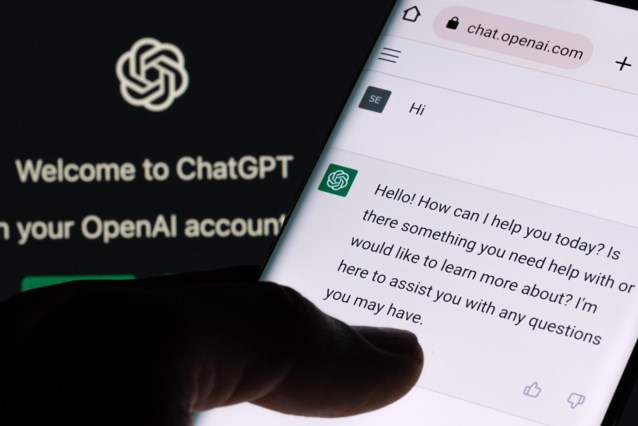University of Antwerp investigates first possible case of AI fraud on paper
© Shutterstock
The University of Antwerp is currently conducting an internal study into the use of artificial intelligence when writing a paper by a student. That confirms the statement. The university also informs that it is working all the time to revise the examination regulations in order to avoid deaths. Community education also has a manual ready.
“I can confirm that we are currently investigating a case where there is a strong suspicion that ChatGPT was used by a student,” said Peter De Meyer, from the University of Antwerp. “To be sure: it is still being investigated. It may also not be the case.”
ChatGPT, a chatbot that can generate entire texts based on artificial intelligence, has been making headlines for some time now. In New York City, for example, the city government made the decision to block access to ChatGPT on the networks and laptops in the city’s school system, the largest in the country. Do you want some students to do their homework differently by the popular chatbot?
Rules adjustment
Other Flemish universities are currently unable to confirm that similar studies are underway. But look at how they should deal with the technology in the future. “We may have to take measures to follow this, because it is absolutely not the intention that you have a dissertation, paper or parts of it written by ChatGPT,” says the Vrije Universiteit Brussel. UHasselt and UGent are also looking at its impact. “We will understand that we have an eye for the possibilities of such systems. Employees of the Educational Quality Assurance department work in this area together with AI specialists on concrete educational tips for UGent teachers,” says Stephanie Lenoir of UGent.
The UAntwerp has been working on concrete steps for some time. “We are going to look at all forms of evaluation,” says De Meyer. “With an oral exam, for example, the chance of using artificial intelligence is not that great. But if the only form of evaluation is a paper, then again the opportunity exists,” he says. “We are therefore going to see whether the evaluation forms need to be refined. For example, should a partial section be linked to a paper?”
The University of Antwerp will also clearly indicate in the examination regulations that forms of ‘ghostwriting’ are considered fraud. “There are underlying sanctions on that. When it can be proven that a student uses AI, a punishment follows,” it sounds. A certain amount will probably not be for this academic year. “The form of the exam must always be available to be communicated to students. We can’t just die in the course of the academic year.”
Milder in middle school
Community education takes a different approach. “We want to look at it from a positive perspective. Our pedagogical service has drawn up a manual on how to deal with it. You cannot ignore artificial intelligence. You also cannot hide it because it is very difficult to track down and prove its use. So we prefer to associate it with reduced media literacy,” says spokesman David Janssens. (sgg)




